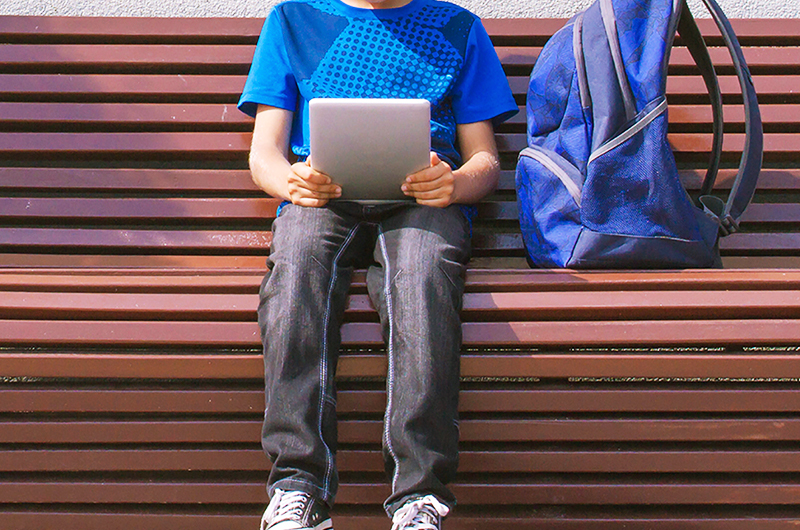Other than perhaps pagers in the 1990s, it’s difficult to think of any product designed for adults which has become as ubiquitous among kids as mobile devices have become. (Tell your kids about pagers. It’ll make them laugh.) Smartphones—and, to a lesser extent, tablets—are a necessity in most children’s lives.
Nielsen recently surveyed parents and found that 45 percent of kids received their own service plan between the ages of 10-12, with 72 percent of those having mobile service that included voice, messaging, and data.
Parents monitor what TV shows and movies their children see, and parental control over mobile usage is just as important. What’s the best way to monitor a device that can be used in so many different ways, is always in a child’s possession, and is out of parents’ sight for most of the time?
Some fairly extensive parental controls are native to every smartphone’s operating system. Google makes the Family Link app for Android devices, with which parents can manage apps, get reports on screen time, and set limits on when the device can be used. For iOS devices, parents can restrict apps, block media, limit Siri’s vocabulary, and more, all from iOS’s Settings.
There are also several choices of free versions of commercial software available that will send regular reports on websites visited, programs used, online searches, and time spent. For more complete monitoring and control, parents can purchase software which will send real-time notifications of violations and abuse, monitor social network activity, and allow the child’s device to be managed remotely.
With the proper restrictions in place, parents should want their children to have and use mobile devices. For parents, the reasons are:
- Practicality – It makes sense that parents and kids should be able to contact each other at any time, for any reason.
- Safety – It’s good to know your child is safe after that monsoon storm just blew through town.
- Responsibility – Kids of all ages no longer have an excuse for not being home on time. If they’re going to be late, they can call and tell you why.
- Social Communication – It’s shocking, but older kids sometimes think their parents are boring. When they are stuck having to hang with mom and dad, they’ll feel better about it knowing they can text their friends, post on Facebook, watch movies, or play games with actual cool people.
- Location – Thanks to location services, parents will always know where their kids are.
Finding the right device and being able to monitor your child’s activities is not difficult and can be a good thing for parents and kids—like your pager was when you were young.


Leave a Reply